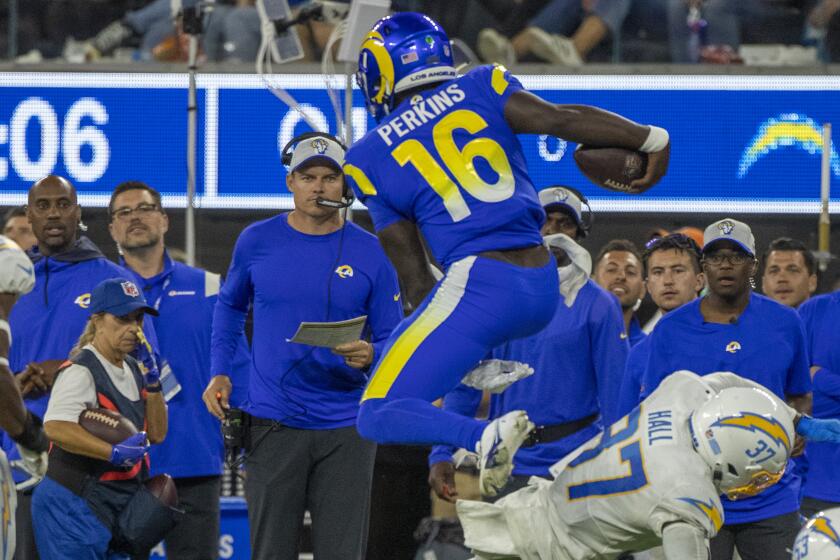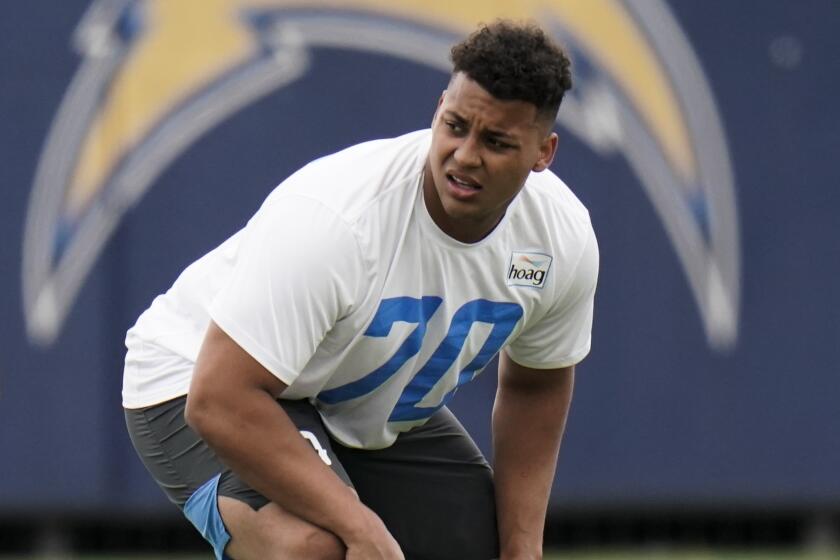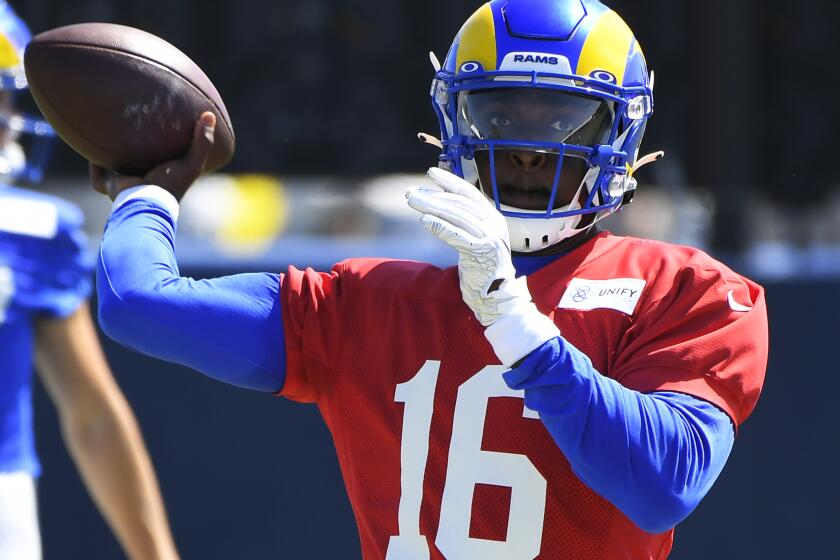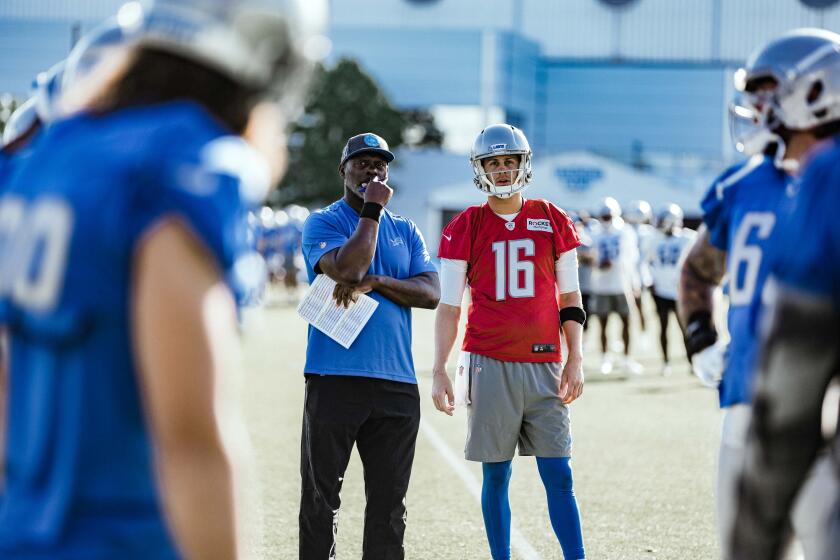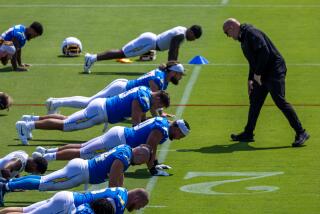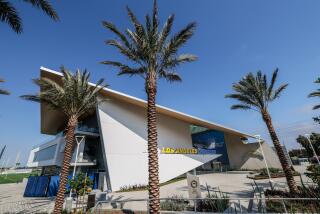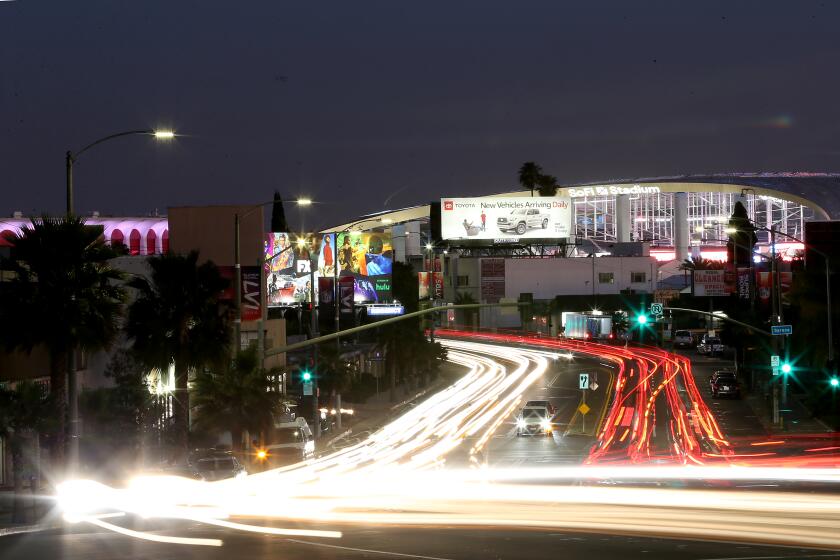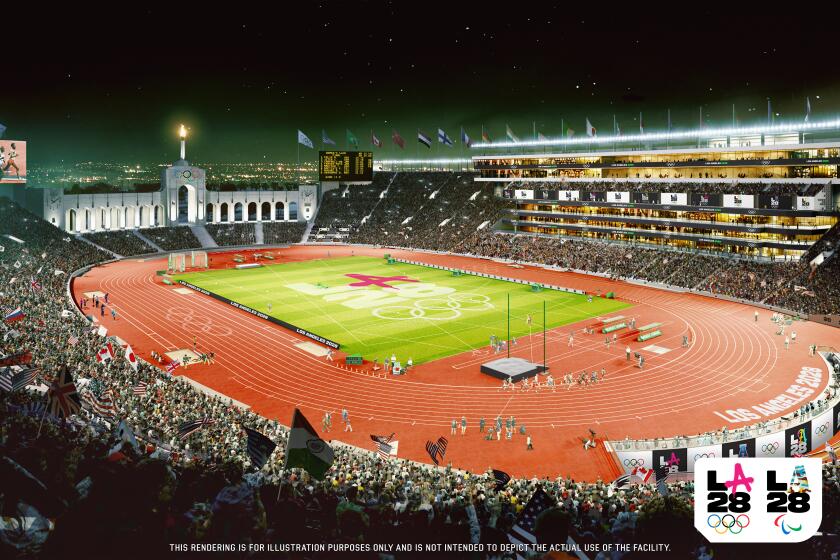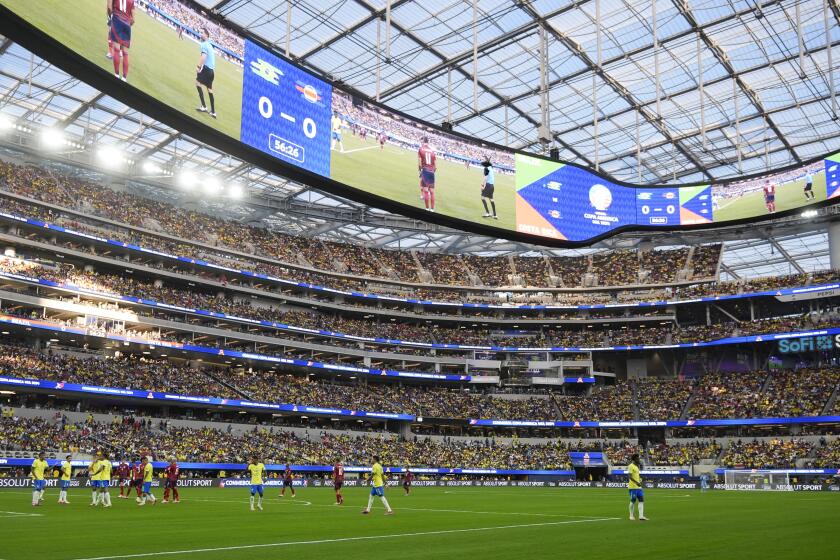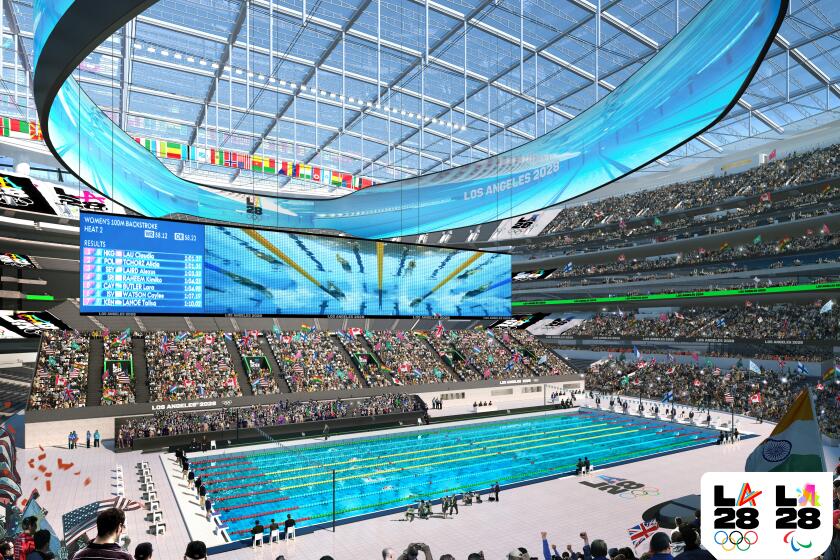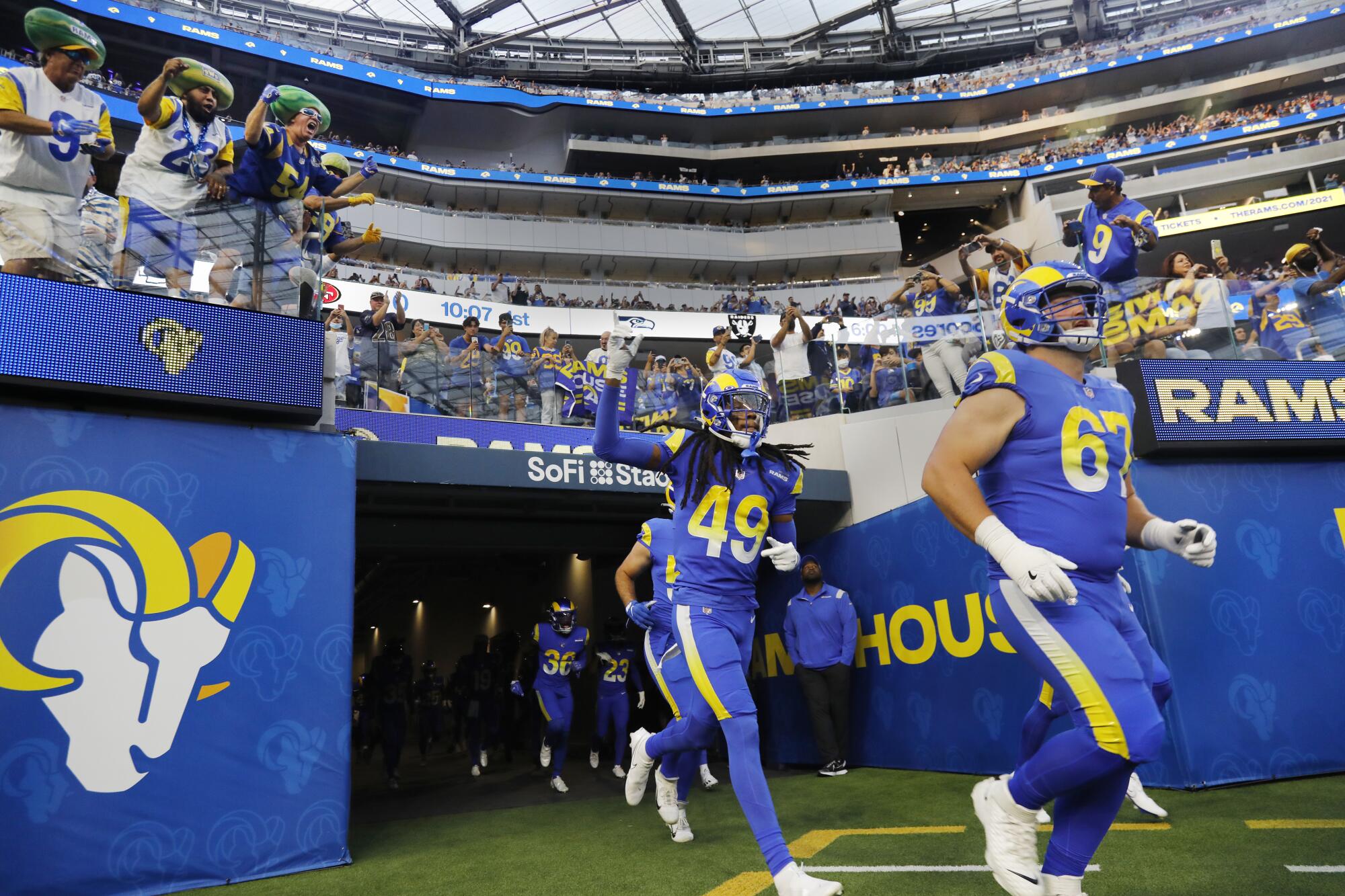
Early mornings are no big deal to Sonny Vida.
Back when he was a kid growing up on Guam, he would get up before daybreak on Monday mornings to watch Eric Dickerson and his beloved Rams, and then 21 years in the Coast Guard only cemented his status as an early-riser.
So rest assured he was in Inglewood on Saturday for the dawn of a new day in Los Angeles football.
Vida, along with his son and daughter, got up at 3 a.m. and made the four-hour drive from their home in Henderson, Nev., for the first real game at SoFi Stadium — or the first game with fans, at least. He’s a Rams season-ticket holder, so he plans to make this pilgrimage at least 10 times this season.
“Blown away,” said Vida, standing at the open bed of his pickup truck and gazing at the palatial venue. “It’s an emotional experience.”
Observations from the Rams preseason opener vs. Chargers at SoFi Stadium.
He wasn’t alone. Hours before the Chargers defeated the Rams 13-6 in a preseason opener, thousands of spectators (official attendance was not announced) streamed into the pristine stadium with phone cameras raised and — under the face coverings — mouths surely agape. For many, it had to be sensory overload, with the music pulsing and everything illuminated by the frenetic flash of videoboards.
‘It’s an indescribable feeling being here. It’s like a dream come true, and I have to pinch myself.’
— Tom Bateman, director of group that led effort to bring the Rams back to L.A.
Both the Rams and Chargers played their home games here last season, but without spectators because of the COVID-19 pandemic. The stadium will play host to the first “Sunday Night Football” game of the season Sept. 12, when the Chicago Bears come to town, as well as Super Bowl LVI on Feb.13.
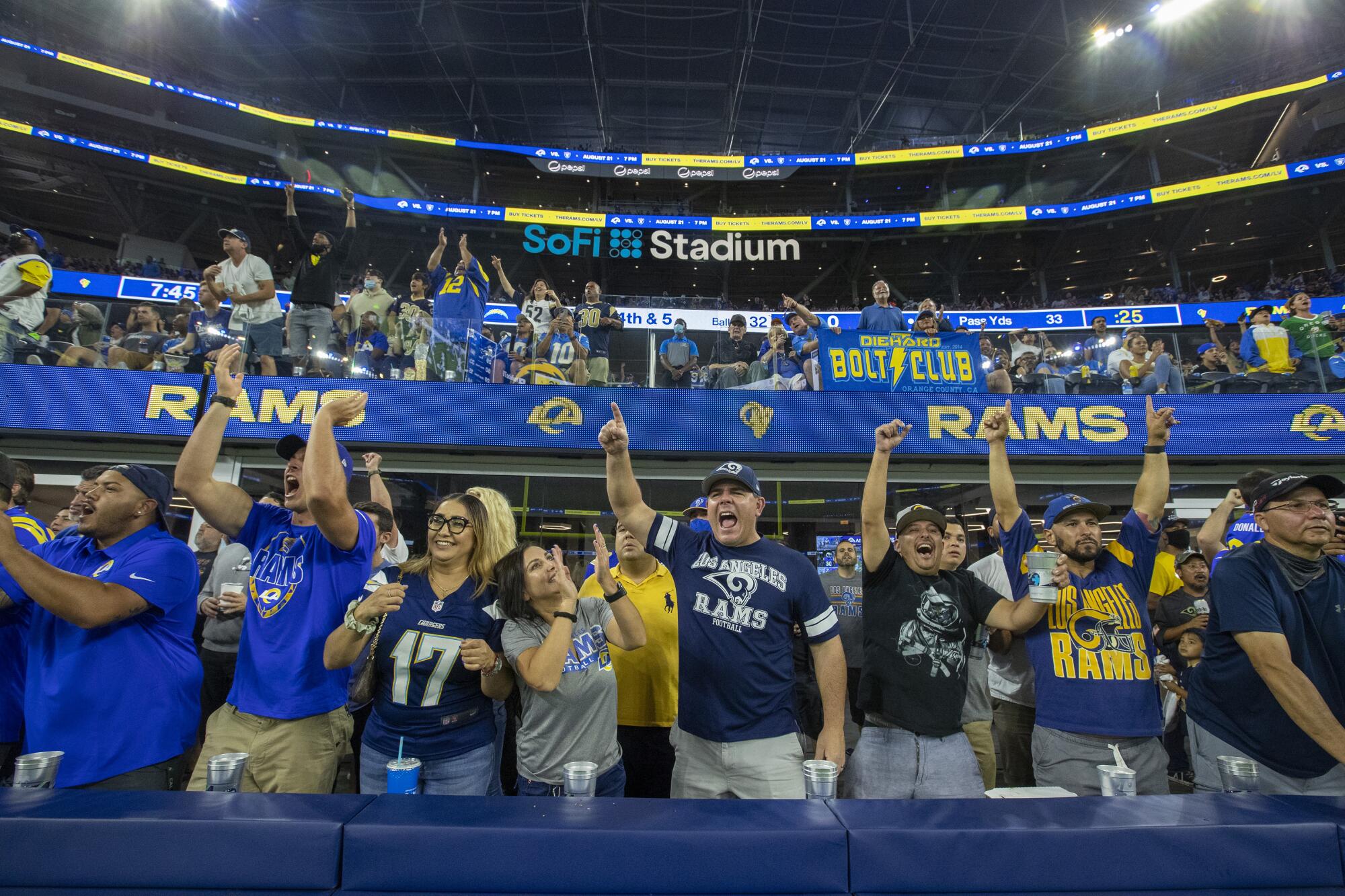
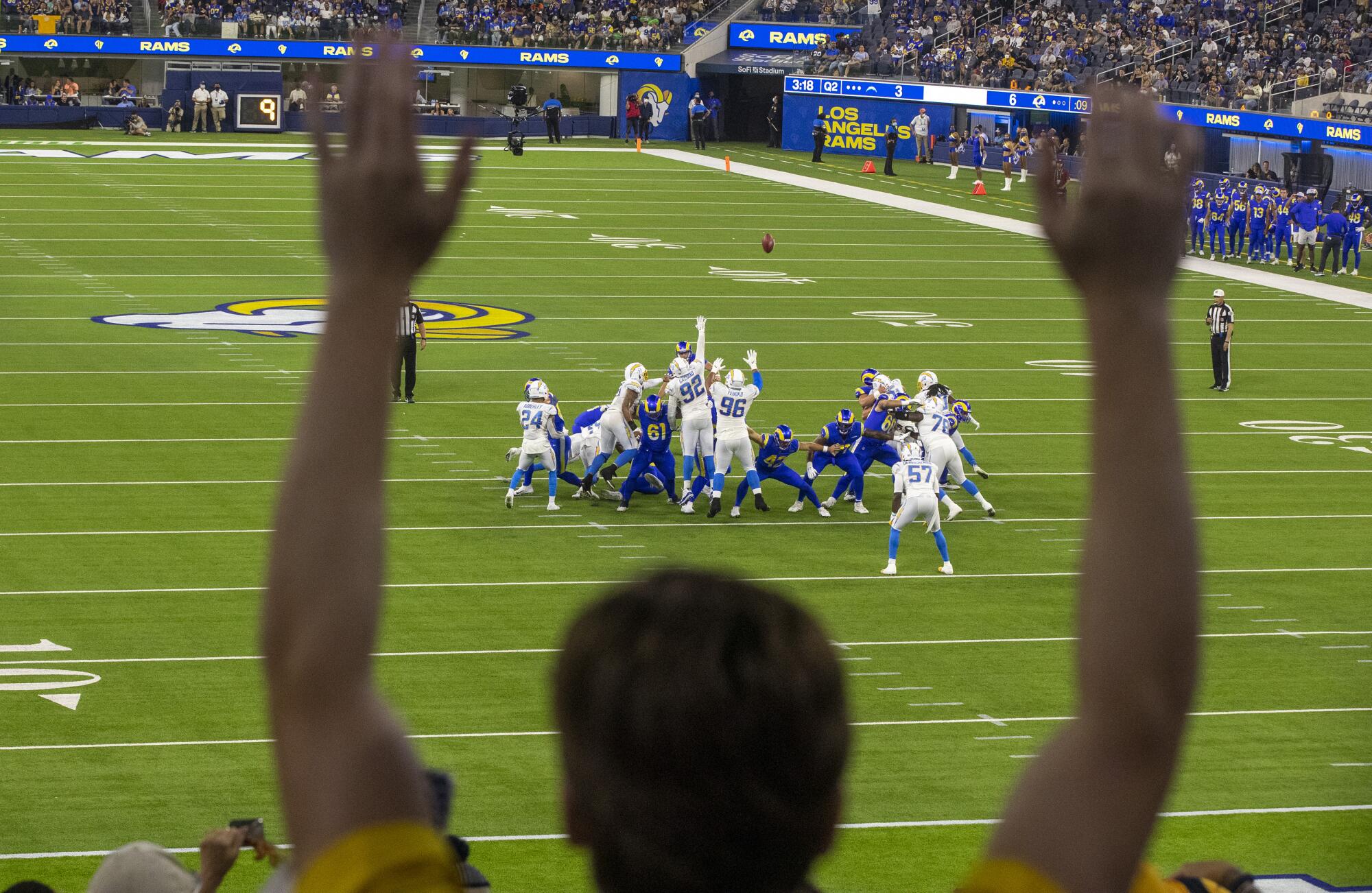
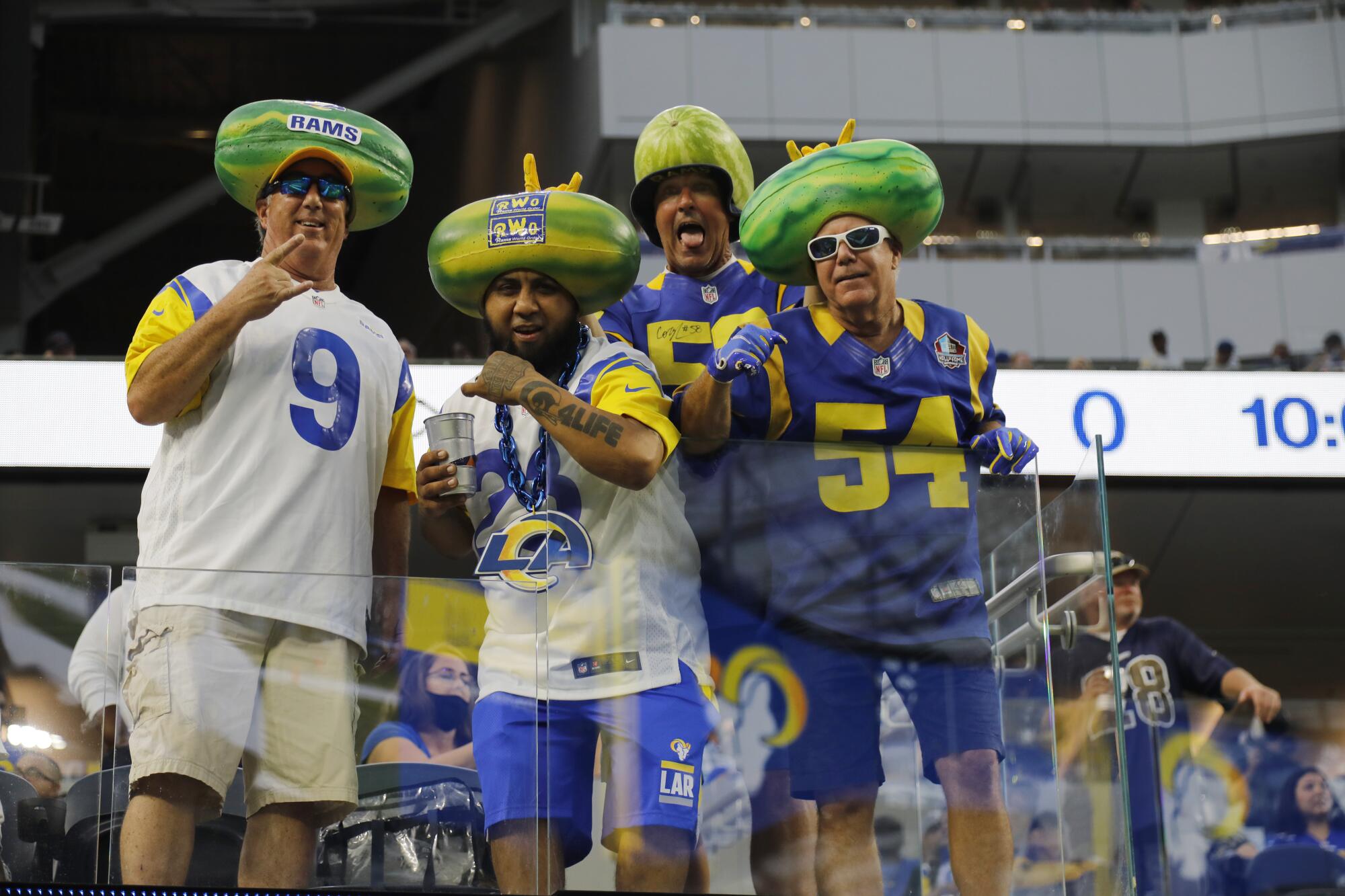
Friday was the fifth anniversary of the NFL’s first game back in L.A., when the Rams played host to the Dallas Cowboys for a preseason game at an overflowing Coliseum. But Saturday was a completely different experience, with the L.A. teams welcoming fans to their new home, the biggest and most expensive stadium in NFL history. The first phase of the project, which includes the stadium and adjoining YouTube Theater, has a staggering price tag of $5 billion.
“It’s an indescribable feeling being here,” said Tom Bateman, director of “Bring Back the Los Angeles Rams,” which spearheaded a grassroots effort to bring the franchise back from St. Louis, where it played from 1995 to 2015.
“It’s like a dream come true, and I have to pinch myself.
Here’s some observations from the Chargers’ preseason opener against the Rams, a game in which the majority of the Chargers’ players did not participate.
“We’ve been away from the game for a year, so this makes it extra sweet. We’re finally in a stadium that’s built for the Rams.”
The Chargers too call the place home, and there was a fair share of Justin Herbert jerseys to go with all the newly minted No. 9s of Rams quarterback Matthew Stafford. Both teams are capable of making the playoffs.
As for the stadium, with its indoor-outdoor feel and enormous 4D videoboard — the oval-shaped oculus suspended from the transparent roof — it’s unmatched in the league.
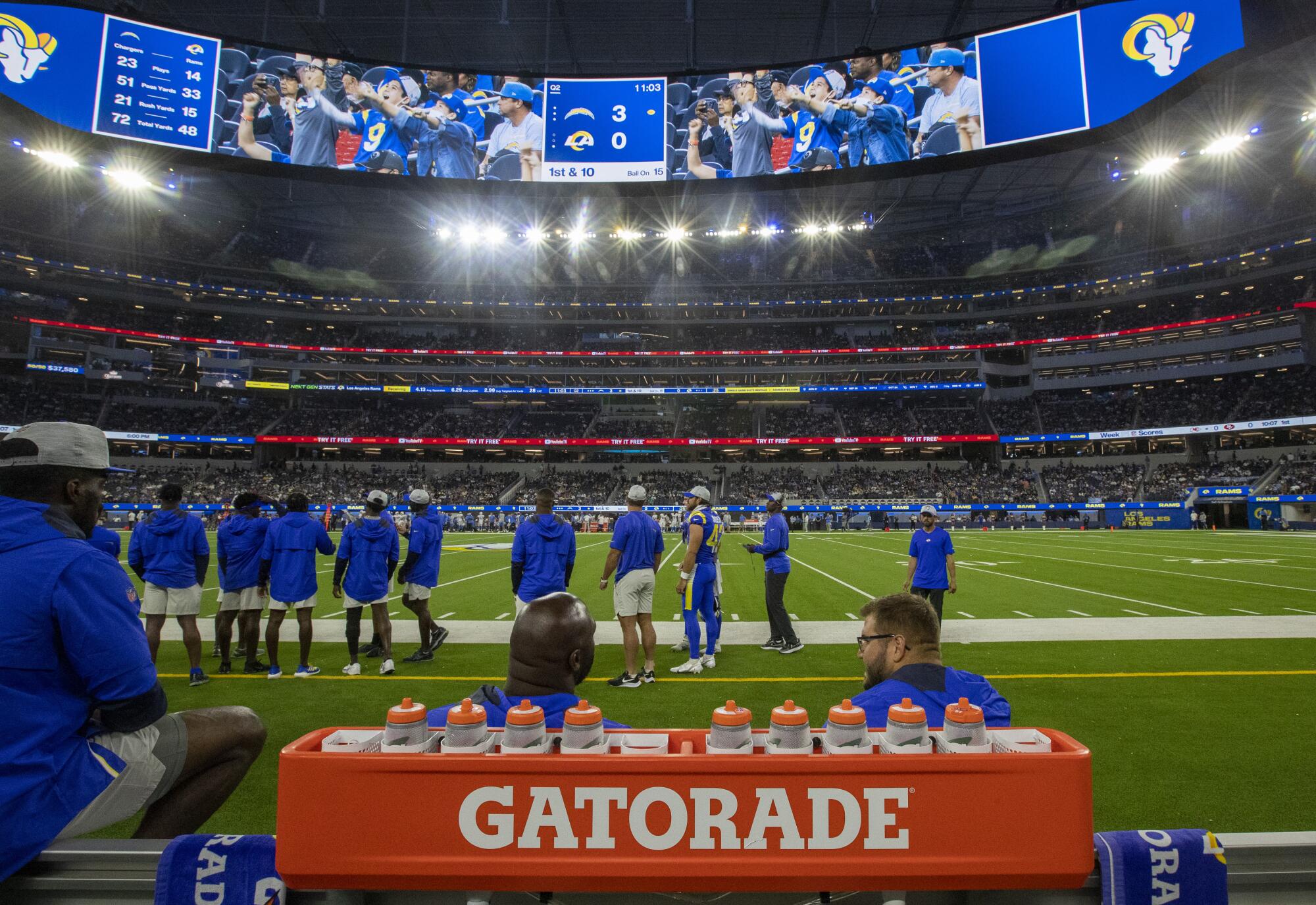
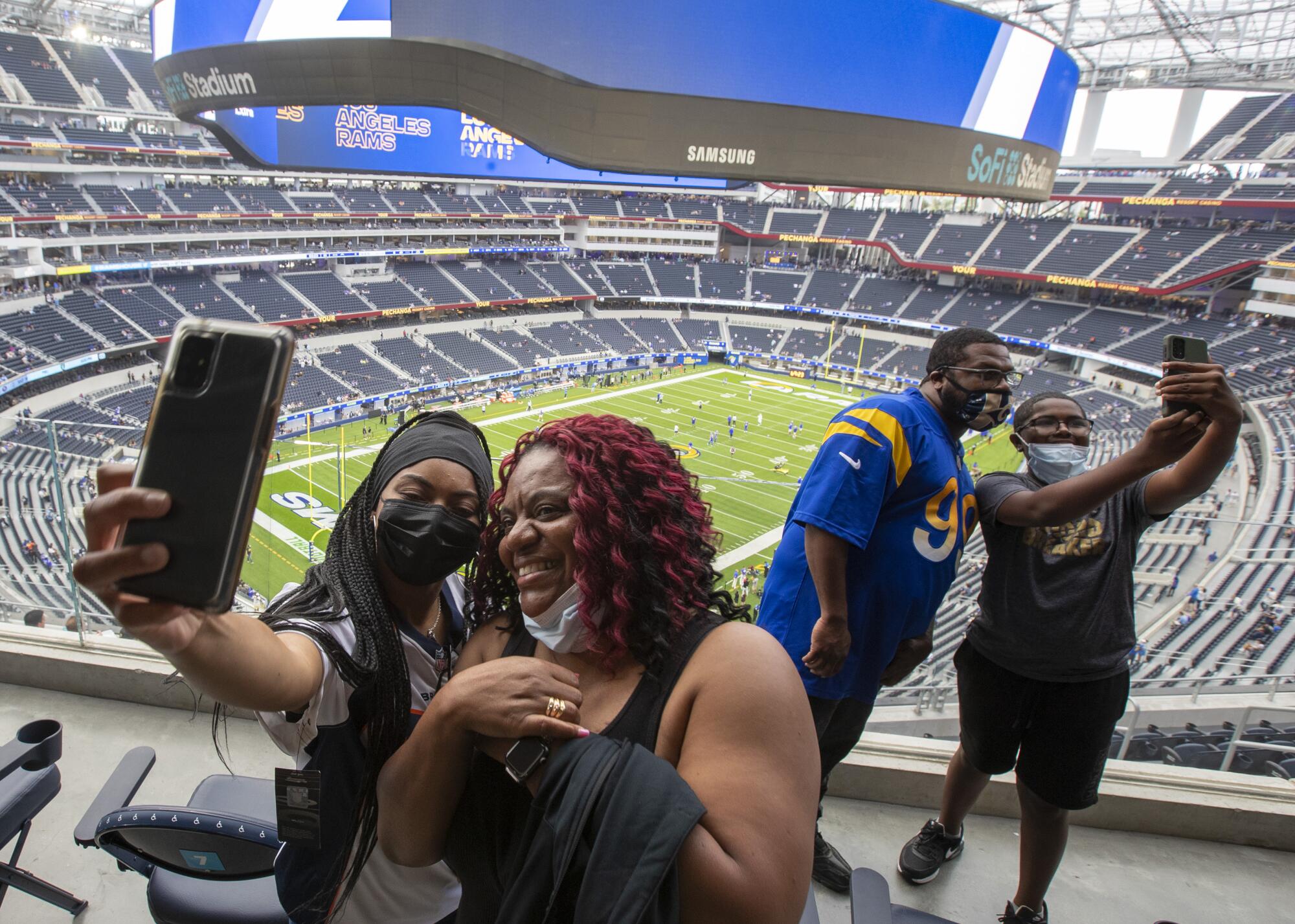
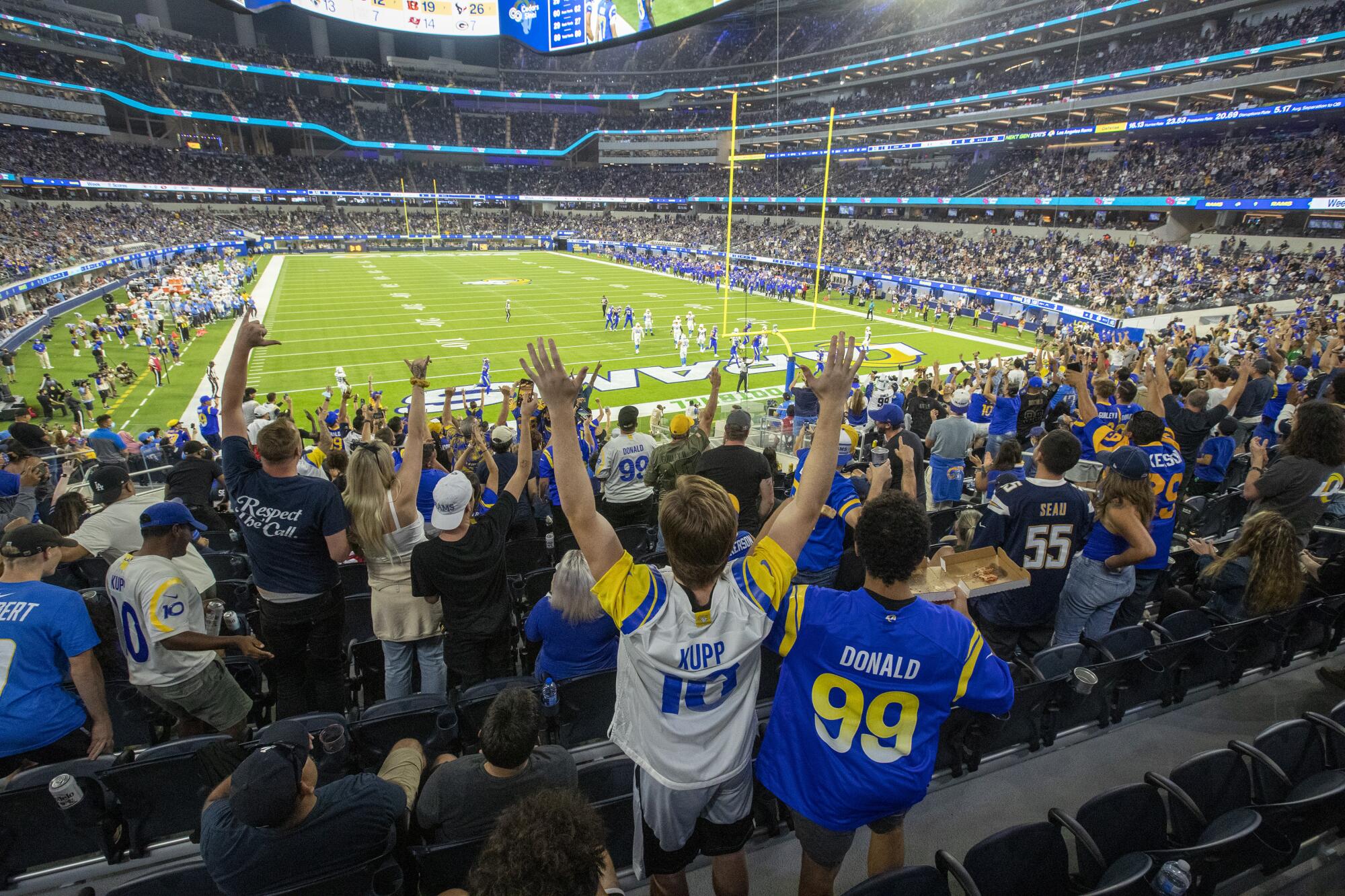
“One of the things we like to do is to go in certain areas of the building and watch people walk in for the first time,” said Jason Gannon, the stadium’s managing director.
“The looks on their faces, the reactions, it’s incredibly fulfilling.”
The place is “Stan Canyon,” the vision of Rams owner Stan Kroenke come to life, with the field sunk 100 feet below ground level.
Quarterbacks Devlin Hodges and Bryce Perkins will have their chance to make their case for a roster spot during Saturday’s preseason game against the Chargers.
“Stan’s objective and mandate to the working team was to build this global sports and entertainment destination. His vision of fan-first, fan-friendly, creating these spaces and to see it come to life, that’s really the exciting part. If you look at the risk that he took on, it’s unfathomable.”
There are wrinkles to be smoothed. There’s heavy traffic, naturally. And the 300-acre site is massive, so it’s an ambitious hike to the perimeter of the parking lots.
There’s a lot of construction in those places now, areas that one day will be retail districts.
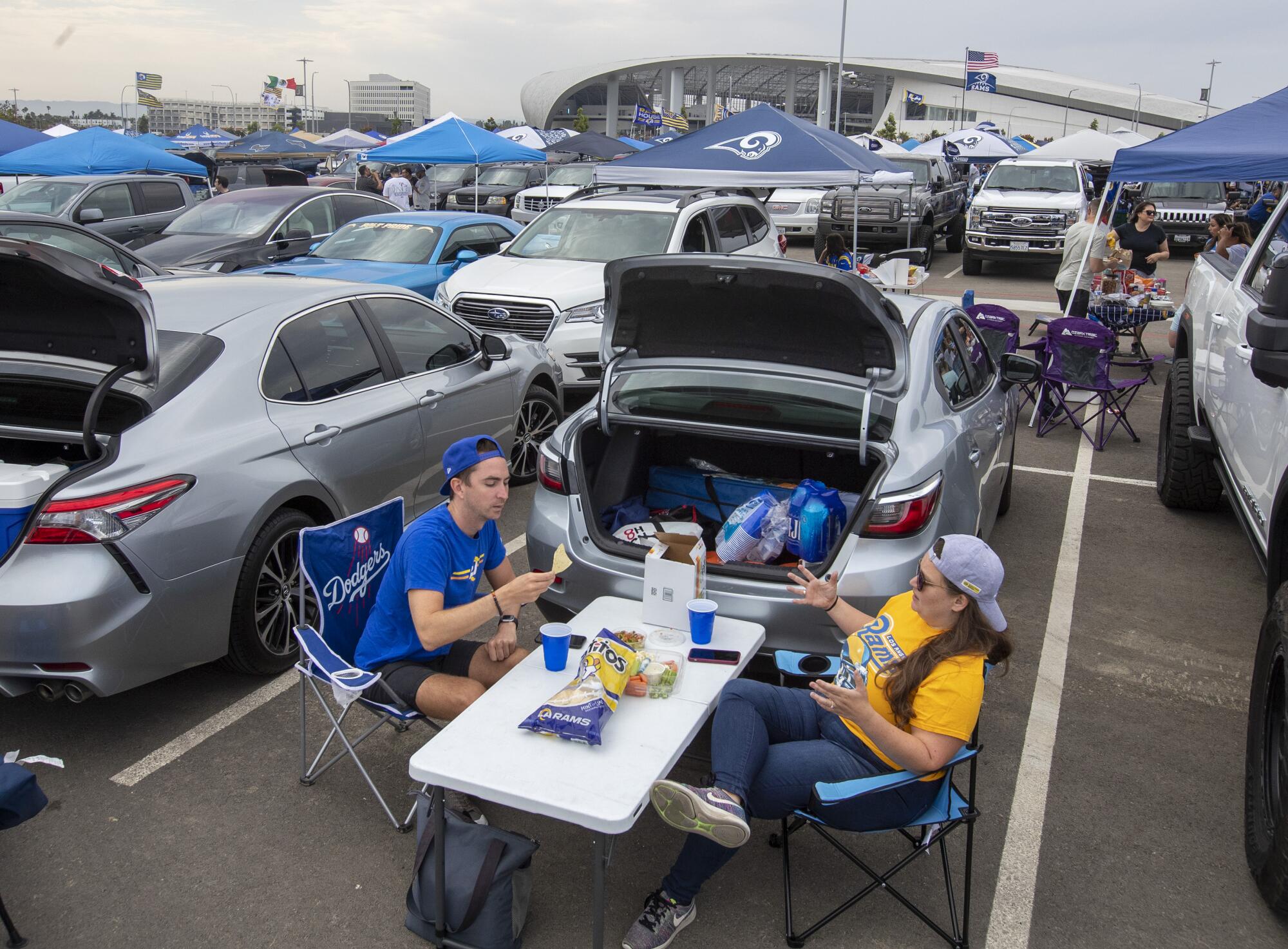
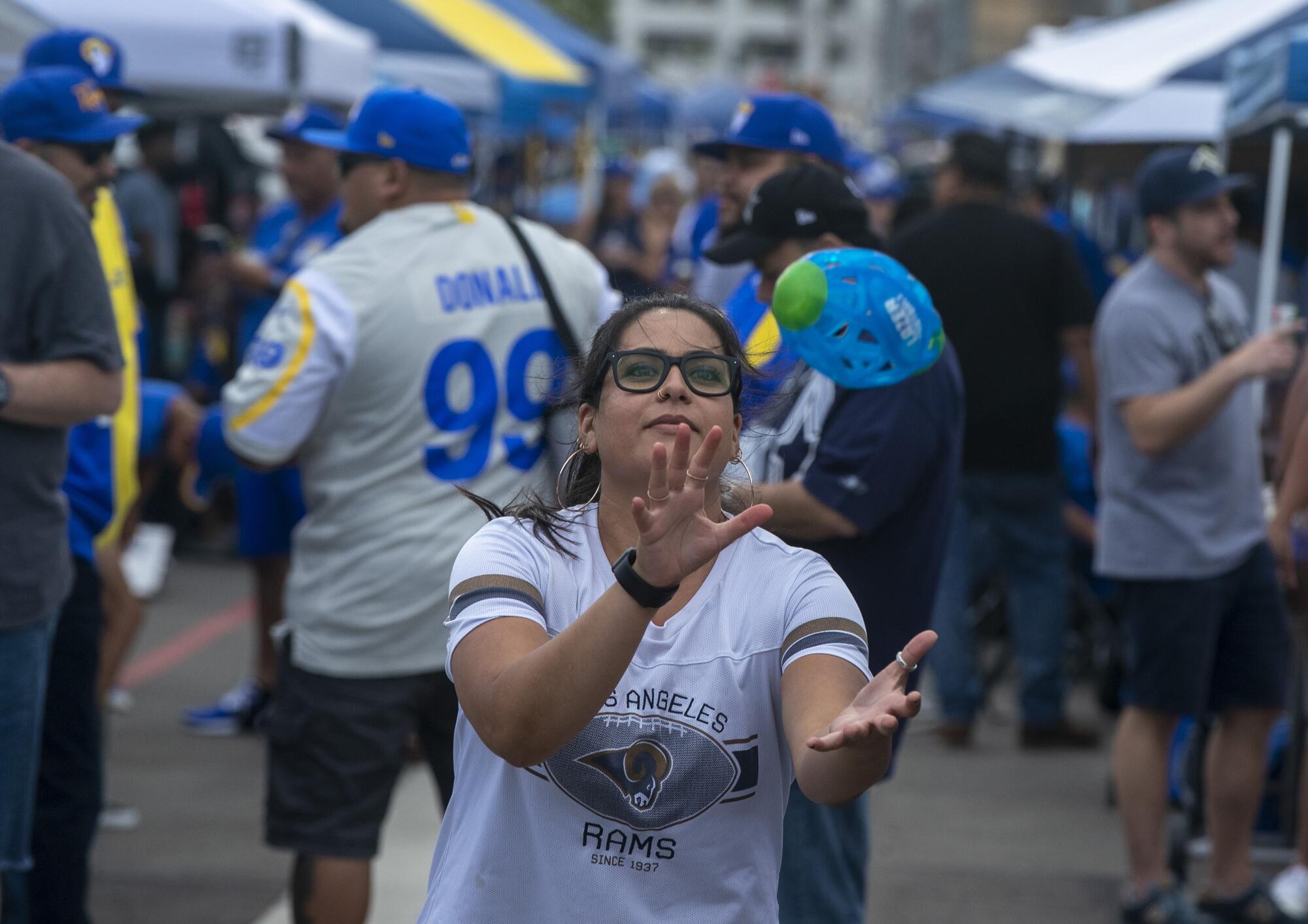
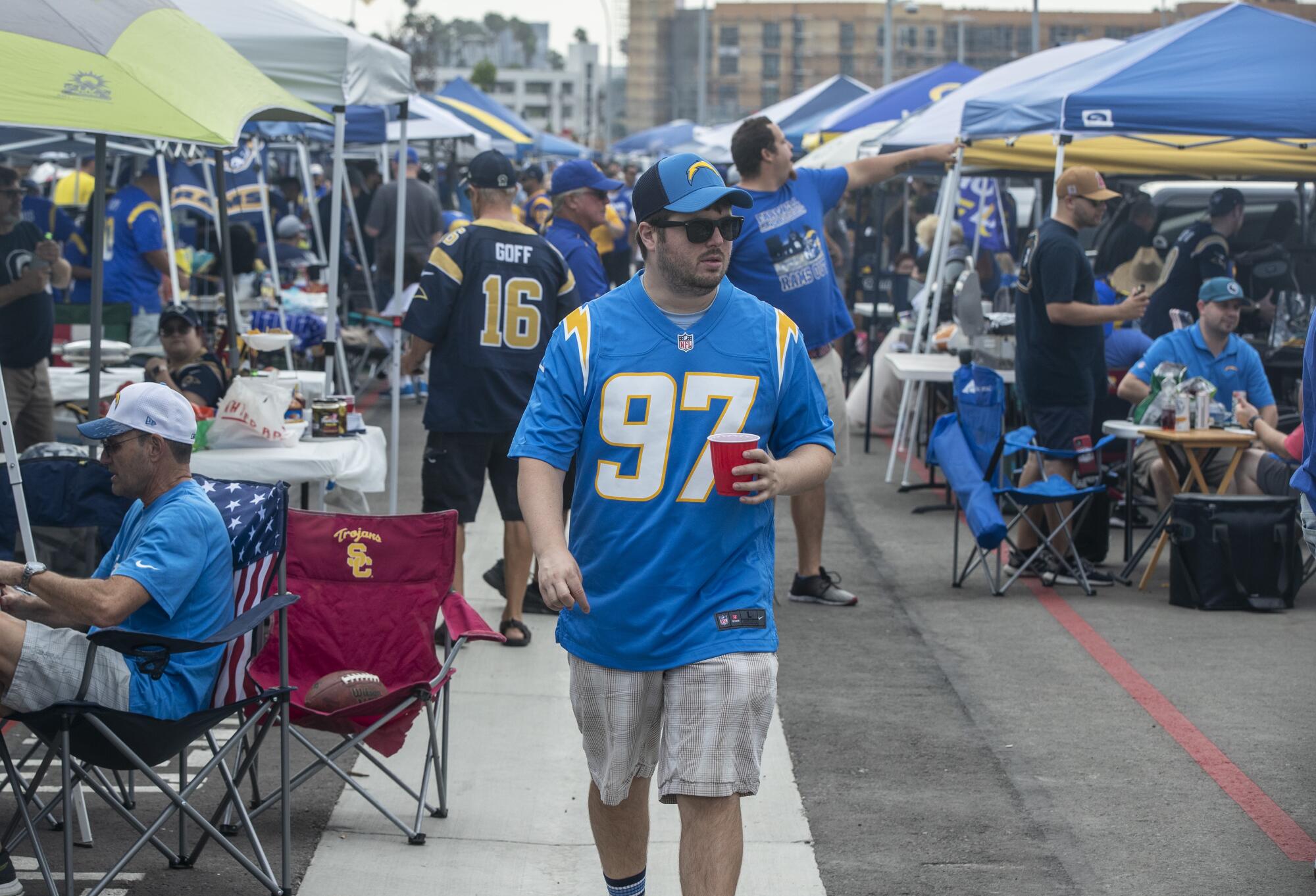
“You’ve got to walk for miles to get here,” said Willie Thomas, who made that slog with his wife, Lucille, despite paying $80 for parking.
Most of the parking on-site is $60 per game, and more for tailgating lots and oversized vehicles.
There are still lots of unknowns, Gannon said, even though both teams have played a full slate of games in the stadium. For instance, how loud is the place? The decibel count was being measured both inside the stadium, and at various spots around the surrounding site. The real test will be the opener, when the place presumably will be packed.
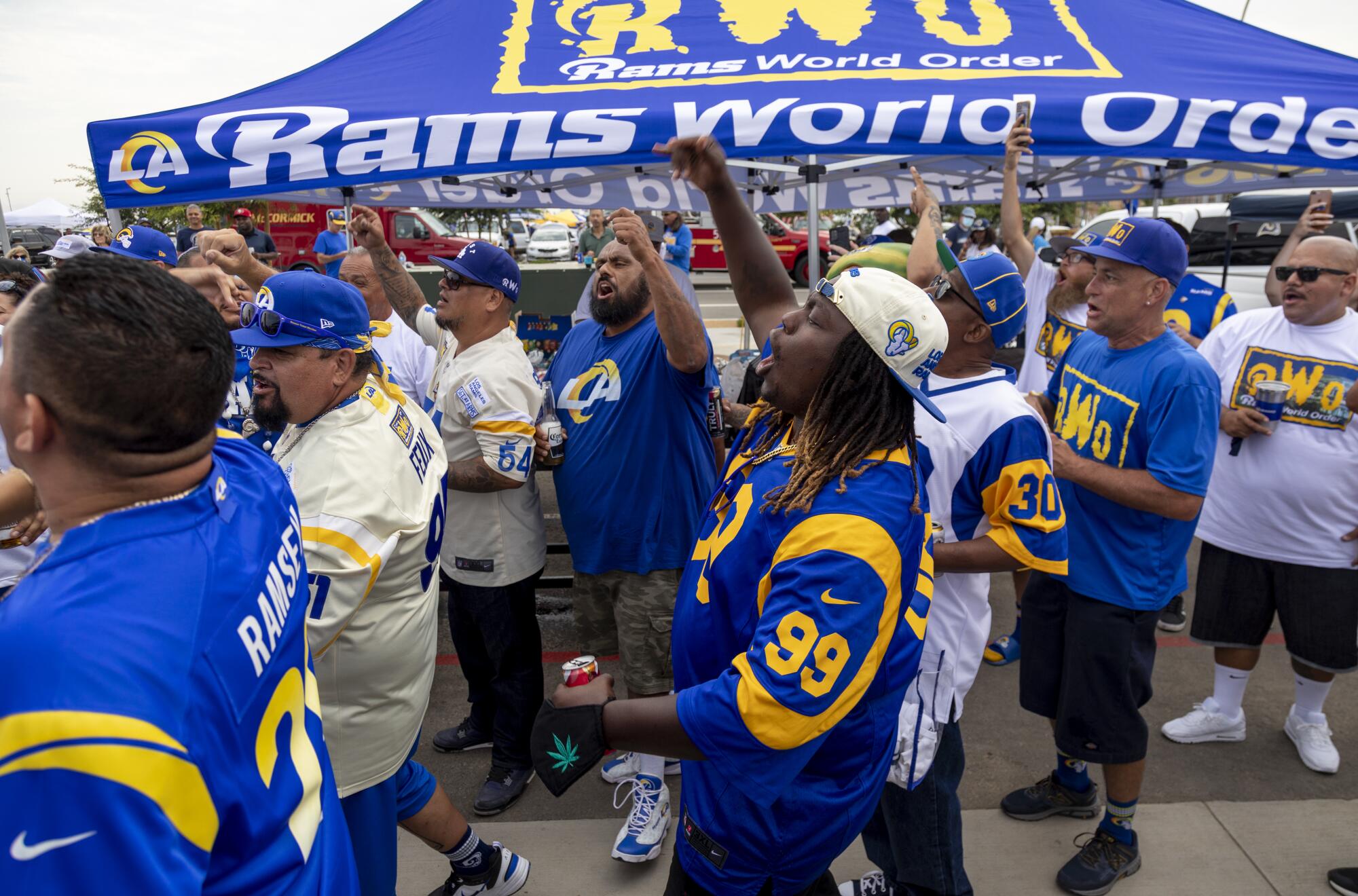
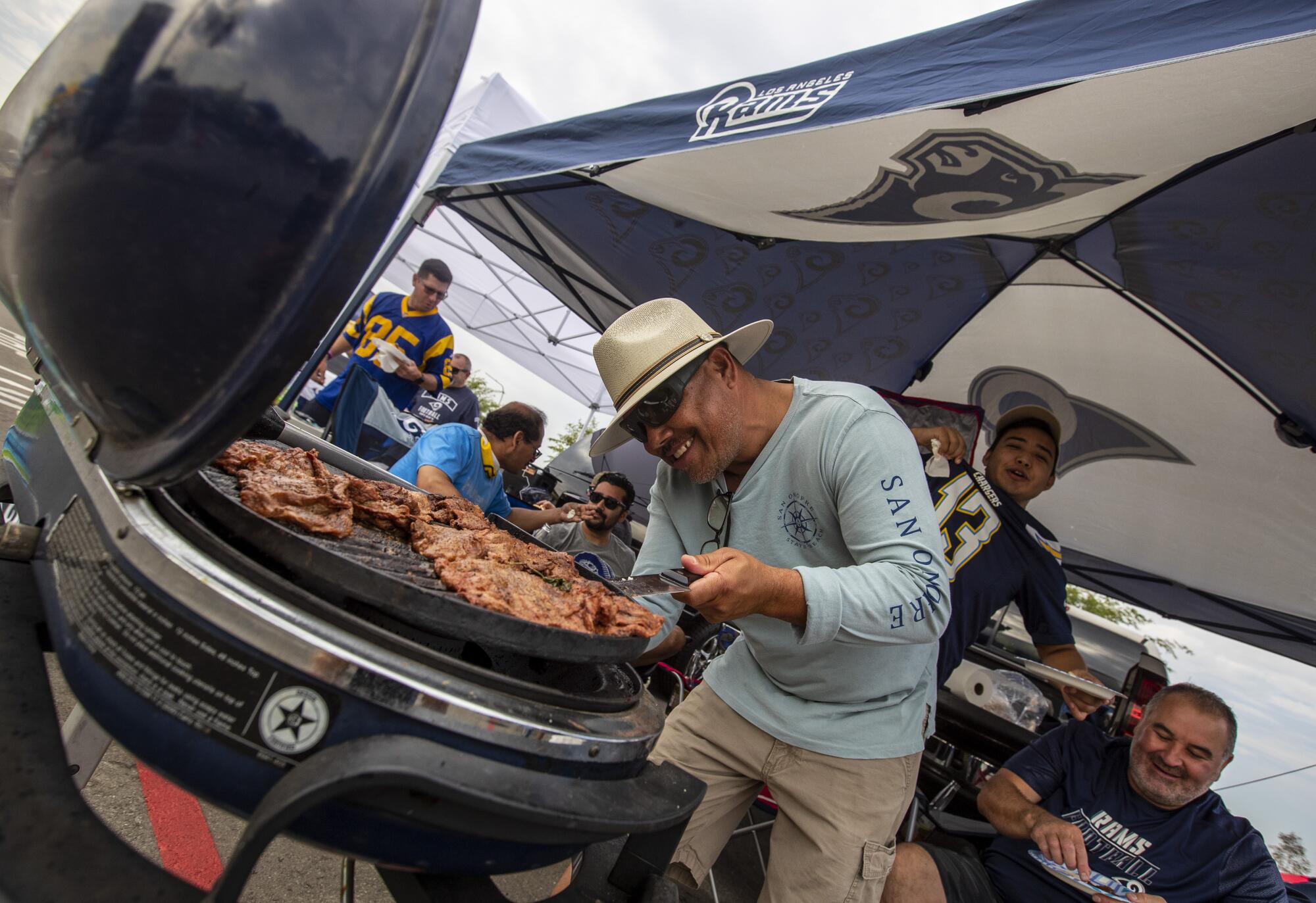
As inhospitable as the teams intend to be on the field, “We want to be good neighbors,” Gannon said.
Maybe he made noise when he got to his seat, but longtime Rams fan Paul Kurz was practically speechless when he got his first glimpse of the place.
“You see pictures and you can look at it, but when you get in here it’s…,” said Kurz, his voice tailing off.
“You’re talking to a guy who’s gone to 17 Super Bowls, and I’ve never seen this. Seventeen of them. And they roll out the carpet, you can see a lot of stuff. But none of them have this.”
‘I’ve never been fired in my life’: Jared Goff and Anthony Lynn experienced simultaneous failure in L.A. They’re looking for a reboot with the Lions.
More to Read
Go beyond the scoreboard
Get the latest on L.A.'s teams in the daily Sports Report newsletter.
You may occasionally receive promotional content from the Los Angeles Times.

